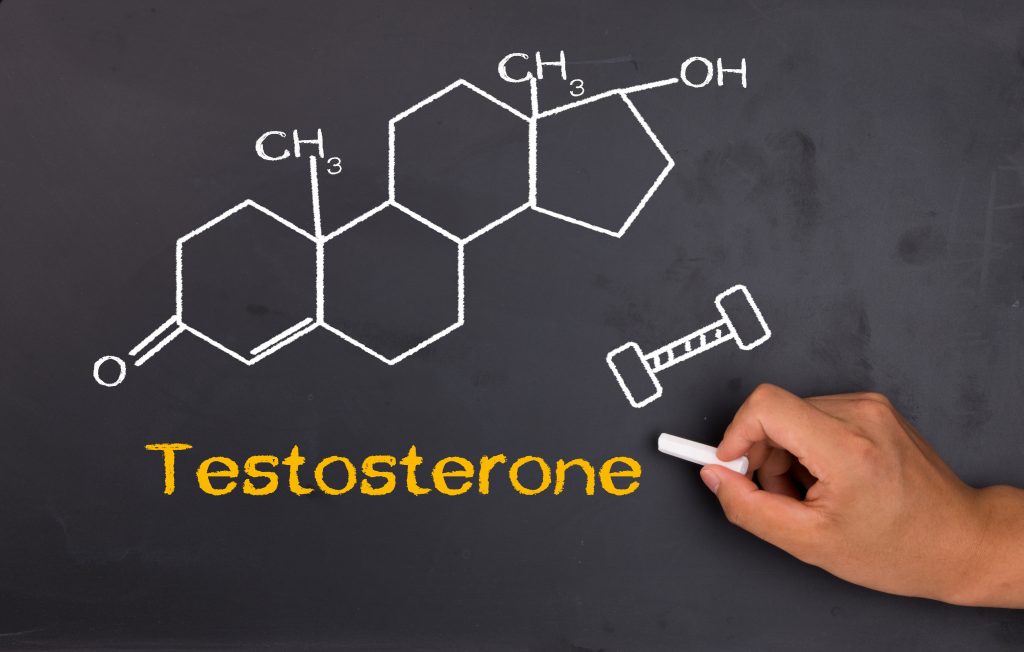Are testosterone boosters a scam? (the truth)
LIKE MOST SUPPLEMENTS IN THE INDUSTRY, TESTOSTERONE BOOSTERS CLAIM TO AID DRASTICALLY IN THE PROCESS OF MUSCLE BUILDING…PROBLEM IS THEY SUCK!
Testosterone is the male sex hormone produced in the testicles and is responsible for regulating:
- Sex drive/libido
- Mental cognition
- Energy
- Protein synthesis
Now…how does any of this help muscle building?
Well, when testosterone is produced in the body it binds to the receptors of the muscle cells, it then amplifies the signal for muscle protein synthesis.
For those of you unaware, protein synthesis is the process in which amino acids are synthesised into muscle tissue.
94-98% of generated testosterone is bound to proteins making them more soluble and readily available for transportation, this binding also prevents it from being broken down by the liver and kidneys.
The remaining 2-6% is termed ‘free testosterone‘ and is used in the process of muscle building.
The average male aged 18-25 displays a total testosterone range of 600-680 ng/dl, although there can be large variances depending on genetics and lifestyle habits.
As a general rule, testosterone levels below 300 ng/dl are considered low and this is where most symptoms of testosterone deficiency are made apparent:
- Low sex drive/libido
- Low energy and decreased motivation
- Difficulty building muscle and strength
- Trouble losing weight
- Gynecomastia (male breast tissue)
Testosterone boosters claim to increase muscle and strength by raising overall test production.
Unfortunately, testosterone boosters fail for two very simple reasons:
- Studies have proven that small fluctuations in testosterone levels DON’T impact muscle building in any meaningful way. This particular research shows increases in total testosterone of 1046 ng/dL were necessary to achieve median increases in lean body mass of 1.5 kg.
- The ingredients usually found in testosterone boosters have been proven as clinically ineffective.
[bctt tweet=”Studies have proven that small fluctuations in testosterone levels DON’T impact muscle building in any meaningful way.” username=”Mindtomusclefit”]
Now let’s analyse the main three ingredients found in testosterone boosters and what the research says about their effectiveness for raising testosterone levels.
D-aspartic acid

Out of all three ingredients, d-aspartic acid shows the most potential.
In this study it has been shown to increase testosterone levels in humans and rats.
The caveat?
These were inconsistent pieces of research and the effects of d-aspartic acid may have been overstated in human clinical trials. [bctt tweet=”the effects of d-aspartic acid may have been overstated in human clinical trials. ” username=”Mindtomusclefit”]
Tribulus terrestris

I will cut straight to the point, multiple studies have proven the ineffectiveness of TT to raise testosterone to any significant degree.
At this point I am starting to feel like a parrot but I will reiterate the fact that even if you theoretically get a small increase in test from TT, it would not be enough to impact your efforts to build muscle in a meaningful way.
Of the three ingredients I am listing here, TT is the worst culprit because it practically has no usefulness.
ZMA

ZMA is a combination of Zinc, magnesium and vitamin B6 which most people are actually deficient in, so I recommend individual supplementation of each.
Outside of select individuals who may have deficiencies for either of these vitamins, ZMA is generally useless for the purpose of increasing testosterone production as this study shows.
After reading the above information, we can come to the conclusion that testosterone boosters are unfit for purpose as an exogenous method of increasing testosterone.
At this point you may now be wandering how to increase testosterone naturally if test boosters themselves have little impact.
Read on to discover the 4 best methods for doing this.
4 Ways to increase testosterone naturally

Now that we have discussed exogenous (External) means of increasing testosterone, we can move on to endogenous (Internal) methods.
There are numerous ways of increasing natural test production, through a combination of optimising your diet, sleep patterns, exercise and reduction of stress.
If you are lacklustre in many of these areas (two or more) then the effects can be quite profound if you make a change.
1. Nutrition

Diet can be used to optimise your hormonal profile, including testosterone.
There are three main macro-nutrients present in the typical diet;
- Protein
- Carbohydrates
- Fat
Protein
Recommended protein intake is 25-35%
The benefits of protein:
- Protein has a high thermic cost, meaning it takes more energy for the body to digest (i.e. 40%).
- Studies have shown that protein is the most satiating macro-nutrient of the three which makes it highly useful for appetite control.
- Protein is vital for the preservation of lean muscle tissue.
Your main protein sources should include fish, eggs and lean meats.
Make sure you also have WHOLE eggs daily because the cholesterol is needed to produce testosterone and other sex hormones.
Don’t worry, the effects of dietary cholesterol on blood cholesterol concentrations are modest at best. As this study shows, increased Egg or cholesterol intakes were not associated with coronary artery disease risk.
Amongst these great benefits, protein does not directly impact testosterone production but is still important none the less.
Carbohydrates
I generally recommend an intake of 40-50%
Carbohydrates are undoubtedly the most important macro-nutrient for increasing testosterone.
The reason for this is simple, an increase in carbohydrates will invariably raise insulin levels that actively suppress cortisol production.
Cortisol has been shown to decrease testosterone levels in males, so high carbohydrates are a must if you participate in strength training.
If this alone is not enough to convince you, then here are some awesome benefits of eating a high carb diet:
- Carbohydrates replenish glycogen stores.
- Higher carbohydrate intakes are correlated with better strength performance in the gym.
- Carbohydrates increase muscle fullness by pulling water inside the muscle cells.
Fat
Fat intake should be kept to 25-30 % (although I would stick to the lower end)
Fat helps produce many of your sex hormones, including testosterone.
One study found that men who received a gargantuan 41% of their daily calories from fat had upwards of 13% more testosterone than men who got only 18% of their total daily calories from fat.
Before you get too excited, it is important to note that an 18% increase is fairly marginal and won’t impact muscle building to any measurable degree.
The problem with increasing intake too high is that fat is the most likely of the three macros to be stored as fat directly in the body..shocking I know!
Also, raising fat intake means you will have to lower overall carbohydrate consumption, which is far more beneficial for increasing testosterone and improving strength training performance.
2. Exercise

Strength training in itself increases testosterone production amongst a host of other anabolic hormones.
I recommend full body training because you get maximum protein synthesis rates and maximum recovery simultaneously.
Excess cardio increases cortisol production which in turn decreases test levels, I would recommend limiting cardio to 4 sessions a week on off days.
Exercise is extremely beneficial for health outside of testosterone, regular exercise has been shown to promote the release of endorphin’s (the feel good hormone) such as serotonin which can counteract depression.
3. Reduction of bodyfat levels

Research has shown an inverse relationship between increased adipose tissue (fat) and a decrease in overall testosterone levels.
The best way to reduce body fat levels is through a combination of diet and increased cardiovascular work.
As for recommended bodyfat% I would advise the 10-15% bodyfat range and no lower as this can actually have the opposite intended affect.
4. Lifestyle changes

The more things you can do to reduce stress and therefore cortisol, the better.
Some of the factors that influence stress include how many hours sleep you are getting per night, curbing negative emotions such as anxiety, as well as managing physical recovery from exercise.
Here is a general guideline that should help reduce stress levels:
- Sleep at least 6-8 hours per night
- Set aside time for relaxation, you need to have a good work/life balance
- Limit excess exercise
- Make sure your diet is on point and you are eating enough total calories
- Get enough vitamin D through sunlight exposure or with supplementation (if you live in a country that has minimal sun time)
Bottom line
Raising your testosterone naturally is a much more cost effective and long-term orientated approach to take.
Whilst testosterone boosters do offer a very slight increase in test levels, they are short term acute responses that don’t translate all that well to muscle gains.
Get your nutrition in check, start exercising regularly and reduce chronic stress as much as you can and your testosterone levels will be as high as they can be naturally.






